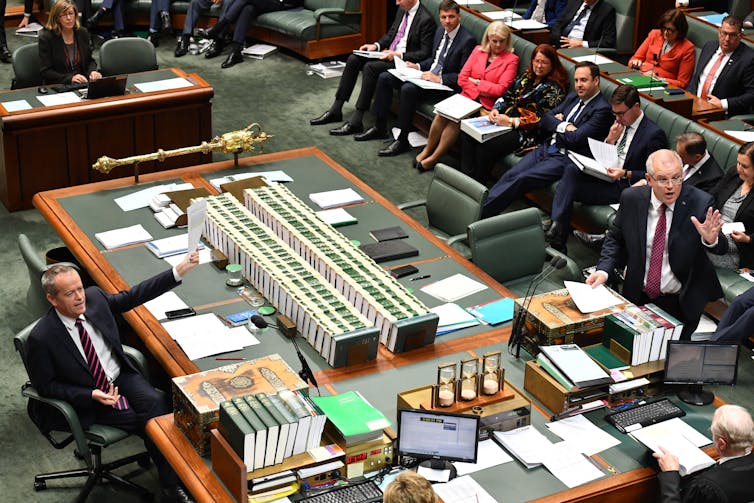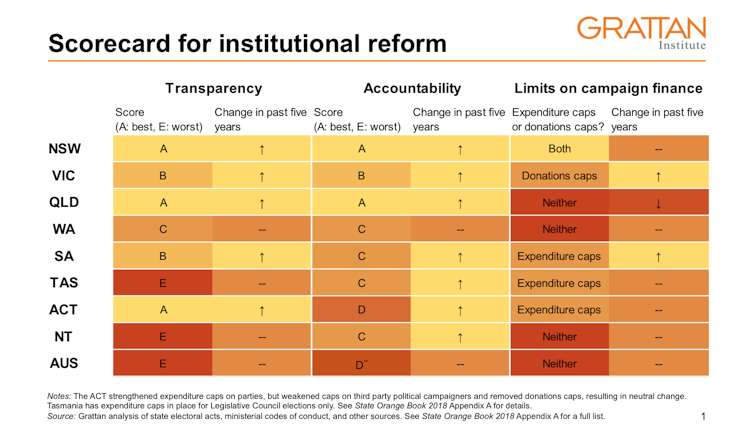Yes, a WhatsApp message could be subject to FOI – but you'd have to find it first
Secure messaging services like WhatsApp often feature in the news in the context of their potential use by terrorists.
But paradoxically they are now used increasingly by Commonwealth government ministers and other senior officials.
Read more: Banning MPs from private messaging apps is a simplistic response to a complex problem
What is FOI and what documents does it apply to?
FOI laws are designed to make governments more open and accountable by providing access to documents that shed light on their activities.The Commonwealth FOI Act applies to the individuals and bodies that make up the Commonwealth government sector, although it excludes some specific bodies and documents.
The Act provides access to information held in documents, including electronic documents, as well as pictures, videos and more. To be accessible a document must be in the possession of a government agency or a Minister. It must also exist in material form, although there is also scope for the creation of a document from a database using a computer.
The right of access under the Act does not extend to exempt documents. The Act contains 18 exemption provisions designed to protect the interest of agencies, third parties as well as broader governmental interests. For example, a document is exempt if it qualifies as a Cabinet document or it reveals internal decision-making processes contrary to the public interest.
Agencies and ministers are permitted to withhold documents, or parts of documents, if they qualify for exemption. They may also refuse requests for access on workload grounds or because the documents requested cannot be found.
Applicants who are refused access are able to apply for review by the Australian Information Commissioner. The Act also provides for further review by the Administrative Appeal Tribunal and appeals on questions of law to the Federal Court of Australia.
To what extent can FOI be used to obtain access to ministerial documents?
Journalists who want to investigate a Minister’s conduct may be able to obtain the information required from a government agency within the Minister’s portfolio. They are also able to obtain access to documents held by Ministers in their official capacity.For example, journalist Sean Parnell used the Act to obtain access to documents sent to then Prime Minister Julia Gillard conveying an earlier Prime Minister’s views on matters of government policy.
He also obtained access to personal character references provided by then Minister Anthony Albanese. Parnell was granted access to these documents because they related to governmental matters – that is, receipt of input to official policy-making and the use of official government letterhead for a reference.
In contrast, Parnell was refused access to diary entries for Julia Gillard’s meetings with business leaders at an ALP conference. The meetings were part of a party political event and did not relate to the affairs of any government agency.
What is the position of messages sent via WhatsApp?
WhatApp messages are encrypted while in transit. However, they exist in material form and it is possible to access and export them from the phones on which they are located.Read more: When is 'not a backdoor' just a backdoor? Australia's struggle with encryption
There is therefore a strong case for arguing that they are subject to the FOI Act in the same way as email and others forms of text messages.
As stated by the former Australian Information Commissioner Timothy Pilgrim, the Act is applicable to any document within its scope irrespective of how that document is stored, including on a messaging app or non-government server. This is consistent with the approach taken in Ireland and the UK.
However, that does not mean that the use of WhatsApp is unproblematic from the perspective of FOI. If the FOI Act is to operate effectively, WhatsApp messages must be filed in such a way that they can readily be searched and retrieved. They must also be preserved consistently with the retention requirements in the Archives Act. It is unlikely that current practice is fully consistent with these requirements.
If WhatsApp messages do exist, can be found and are stored in searchable form they are potentially accessible via FOI. But to call them up could involve huge workload requirements.
Moira Paterson, Professor of Law, Monash University
This article is republished from The Conversation under a Creative Commons license. Read the original article.
I wrote about this issue and the Australian angle in 2015 when the Hillary Clinton private server matter was attracting attention



